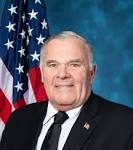
INDIANAPOLIS – Let me give you an update about the work that has been accomplished by a task force designed to heighten public awareness on the problems caused by abuses of prescription drugs. I am pleased to join this task force this year.
The Indiana Prescription Drug Abuse Prevention Task Force, a group consisting of lawmakers, law enforcement officers, members of the medical community, health officials, pharmacists, and educators is dedicated to reducing the abuse of controlled prescription drugs and decreasing the number of deaths associated with these drugs in Indiana.
The numbers are shocking.
According to the Indiana State Department of Health (ISDH), 718 Hoosiers died from accidental drug overdoses in 2011, compared to 654 deaths the year before. The National Institute on Drug Abuse said more people abuse prescription drugs in the U.S. than cocaine, heroin, hallucinogens and inhalants combined.
This year, we were able to pass a series of legislative initiatives:
- Cutting down on prescription drug abuse:Â Currently, pharmacies licensed to dispense drugs in Indiana are required to submit controlled substance prescription information to a statewide database called INSPECT every seven days. Under a new law, pharmacists will upload the data within 3 days beginning 2015 and within 24 hours beginning in 2016. This change narrows the window of opportunity for addicts to wrongfully fill a prescription multiple times. (HEA 1218)
- Improving access to mental health and addiction treatment services:Â ISDH reports a statewide shortage of mental health professionals and addiction treatment professionals. A new law offers student-loan forgiveness grants to psychiatrists, psychologists, psychiatric nurses, addiction counselors and mental health professionals who pursue addiction training in behavioral health and addiction psychiatry. (HEA 1360)
- Curbing instances of Neonatal Abstinence Syndrome (NAS):Â Newborns exposed to prescription or illicit drugs while in the womb suffer withdrawal symptoms including respiratory complications, low birth weight, feeding difficulties and seizures. Under a new law, the ISDH will collaborate to determine best practices for physicians treating NAS and establish a standard reporting method for these types of cases. This legislation is a critical first step in determining the scope of the problem and ultimately, help direct more resources to these children and their mothers. (SEA 408)
- Assisting opioid drug overdose victims: A new law encourages emergency first responders—including law enforcement and firefighters—to be equipped with Naloxone, a medication that reverses the effects of an opioid drug overdose. Opioids include drugs like heroin, oxycodone and methadone. The measure also removes legal barriers to first responders utilizing the antidote to save lives. (SEA 227)





Your most harmful drug dealer in the community is your local pharmacy. Gotta love the US of Corporations.
” A new law encourages emergency first responders—including law enforcement and firefighters—to be equipped with Naloxone, a medication that reverses the effects of an opioid drug overdose.”
Really? We have now passed a law that “encourages”, rather than “requires”, the application of just plain good judgement. When we have to legislate common sense, we’re in deep trouble.
Instead of Doctors prescribing opiate drugs maybe they could try prescribing marijuana , oh I forgot big pharma is against it and doctors get big kickbacks for prescribing addictive drugs
Sometimes opiates are the better choice and prescribing a bag of weed just makes you sound like a hypocrite as though the carcinogens in the smoke of pot is somehow less harmful than cigarettes. Anyone recovering from an invasive surgery would handily welcome an opiate. Laying it at the feet of “big pharma” and doctors is non-sense as if all the opiates involved in NAS come from either.
In states where it is medically approved they sell in many forms other then as you say “a bag of weed ”
it is available in different types of edibles ,beverages ,and in lozenge form also and yes in it’s natural form
people O.D. on opiates all day long everywhere across the world , can you say the same about pot?
Yes yes, pot good for unborn baby, nicotine bad, opiates bad. Hurrah for pot the miracle drug safe for young and old.
pfft.
Tell that to the student that fell to his death after eating a pot cookie.
For the last time, you can take cannibis in other ways than smoking.
Yeah ghost Animal control http://3.bp.blogspot.com/-vujZkG3mVhY/UvVVjS0kK8I/AAAAAAAAREE/qbfh2sRGKLA/s1600/dog-cannabis.jpg
Of course it can be taken in other ways. And for the last time you cannot say it is completely safe for unborn children since the article is in part about NAS.
I don’t think pot is as safe as most want to make it out.
http://www.webmd.com/vitamins-supplements/ingredientmono-947-MARIJUANA.aspx?activeIngredientId=947&activeIngredientName=MARIJUANA
Sounds like toad takes cannibis up the rectum….Just sayin…
I’m sure somebody somewhere has tried that. I haven’t used MJ in years but if the tyranny ever stopped I have to admit I’d burn one for old time’s sake. When big pharma gets their business plan together to where they alone can profit from MJ it will be legal. I can see it happening within my lifetime.
I do believe that pot would be an effective way to ease the suffering of many who suffer from mental illness, without the terrible side effects that so many psychoactive drugs have. It has been proven to be beneficial to cancer and glaucoma patients.
I’ve never cared much for it, but I do think we need to de-criminalize it, control and tax it, and use it for whatever good we can. The synthetic stuff is really, really dangerous.
Try it and let us know 🙂
Seriously doubt if this law will have any effect on those addicted to opiates. Stopping the diversion of opiates from those who have a legitimate Rx and don’t use it is the real issue. The system already works pretty good to prevent drug seeking activity from being very successful. The recovery rate for those addicted to opiates is near 0, so out treatment modality is a failure. We need to develop better means of medicating the addiction and let people live a somewhat normal life while addicted. They need to be treated in the same fashion as someone medication dependent because of a medical issue, like insulin for diabetics. Don’t care about the marijuana issue of legal vs. illegal, it’s still dope. It has a whole set of issues in itself, let the workplace sort it out.
Comments are closed.